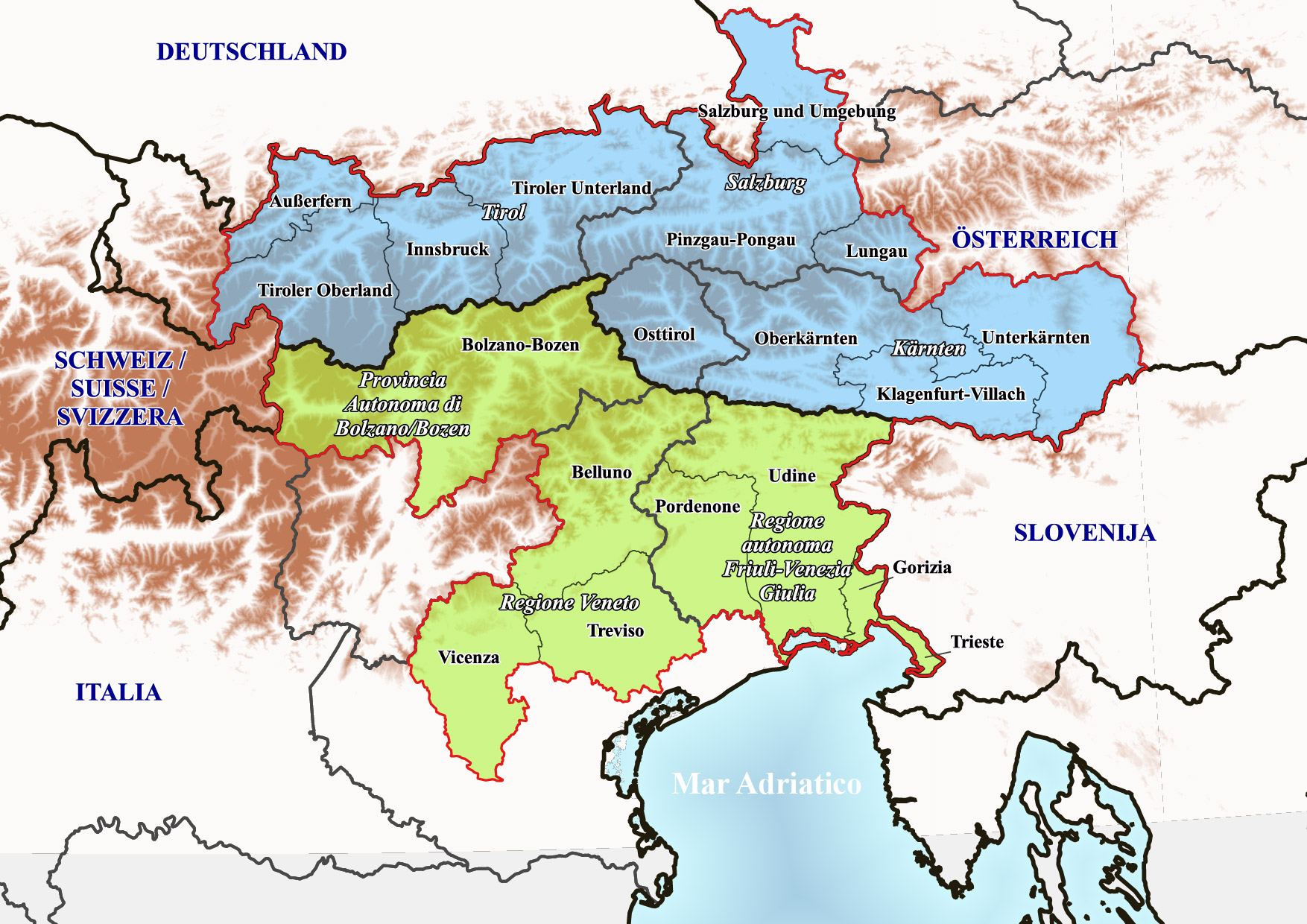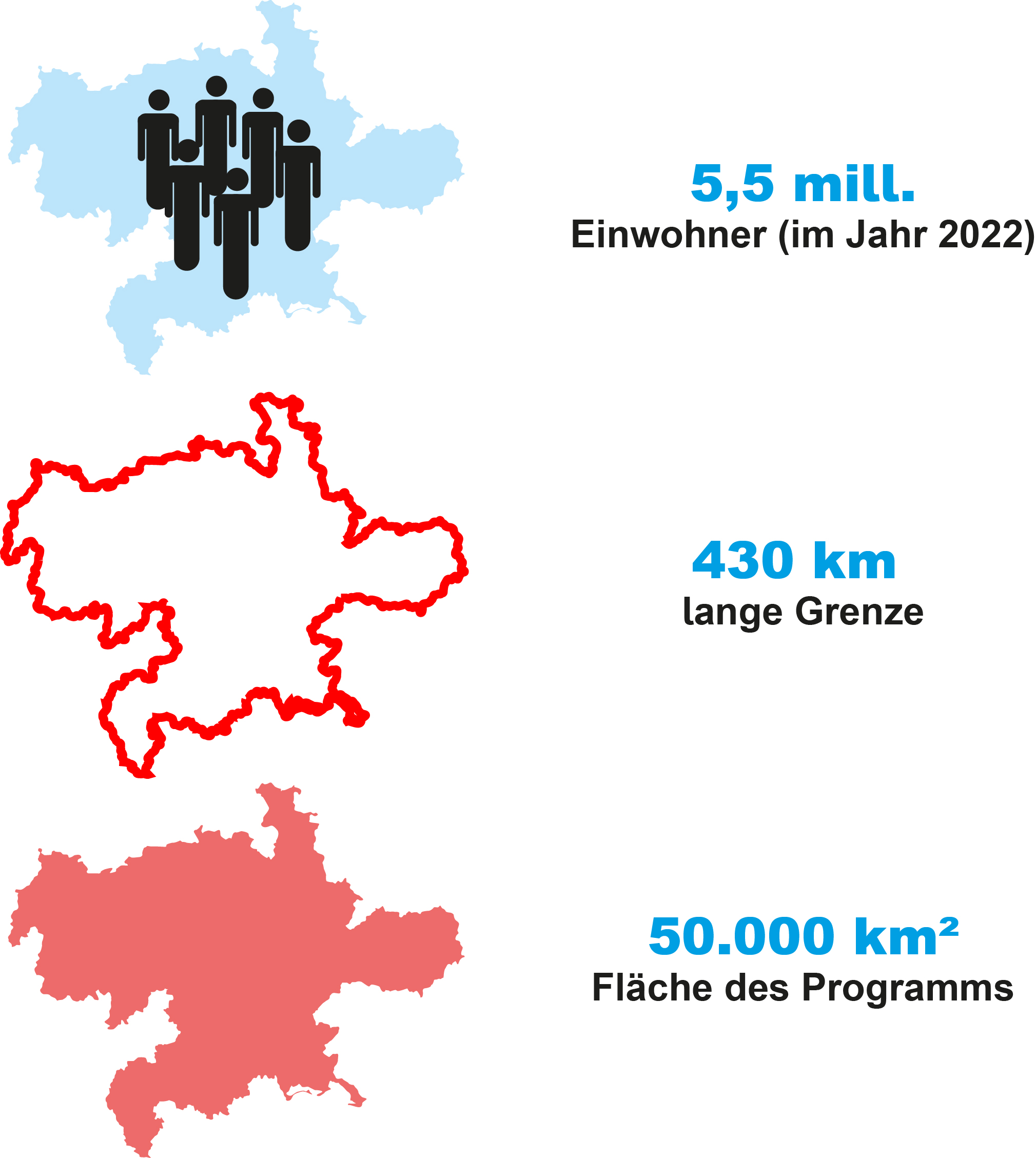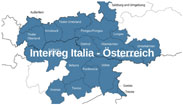Cross-border cooperation in the programming period 2021-2027
For the forthcoming long-term budget of the European Union from 2021 to 2027, the European Commission proposes to modernise cohesion policy. Cohesion policy is the most important investment policy of the EU and an extremely concrete expression of its solidarity, because it supports the European Community in overcoming structural and social differences between the member states, but also within the individual states. These differences damage economic and social cohesion within the European Union and only by overcoming them can our Union develop in a harmonious, balanced and sustainable way. In order to achieve this, cohesion policy is implemented through special financial instruments, the so-called European Structural Funds. These structural funds also include the Interreg programmes and thus also the Interreg Italy-Austria programme.


The draft strategy for the Interreg VI Italy-Austria 2021-2027 programme is drafted on the basis of the following three inputs:
1. Five objectives of cohesion policy
With the new cohesion policy, the European Commission is focusing on the following five investment priorities:
- a smarter Europe through innovation, digitisation, economic change and support for small and medium-sized enterprises
- a greener, CO2-free Europe that implements the Paris Convention and invests in energy transformation, renewable energies and the fight against climate change
- a more interconnected Europe with strategic transport and digital networks
- a more social Europe that implements the European pillar of social rights and promotes quality jobs, education, skills, social inclusion and equality of access to health care
- a Europe closer to its citizens by supporting local development strategies and sustainable urban development across the EU
2. Task Force for Programming 2021+
At the meeting of the Monitoring Committee held in Salzburg on 9 May 2019, the managing authority of the Interreg Italy-Austria programme was mandated to initiate preparations for the next programme period. The technical meetings of the "Task Force on Programming 2021+", composed of representatives of the programme regions and the Member States, will be used to prepare the new programme. Innovations and optimisations of the strategy will be developed jointly on the basis of the experience gained during the funding period which is coming to an end and the new needs of the programme regions. The Task Force meets approximately every 6 weeks.
3. Public consultations of interested parties
Public opinion plays a key role in defining the new programme strategy. In various consultations, the views, expectations and suggestions of stakeholders, i.e. past and future promoters, but also of the general public are sought. All information and invitations to these consultations are available on this website.
Priorities
The strategic and specific objectives have been divided into five programme priorities:
![]()
Priority 1 INNOVATION AND ENTREPRENEURSHIP invests in the areas of smart specialization strategies, promotes investment in research and development, supports new businesses on issues of cross-border relevance, and contributes to energy transition issues and energy efficiency.
![]()
![]()
Priority 2 CLIMATE CHANGE AND BIODIVERSITY focuses on the issues of civil protection, risk prevention, ecosystems, environmental protection and strengthening biodiversity.
![]()
![]()
Priority 3 SUSTAINABLE TOURISM AND CULTURE promotes sustainable tourism models by fostering quality tourism,h ealth tourism, and the digitization of tourism and cultural offerings through the contribution of cultural and creative enterprises..
![]()
![]()
Priority 4 COMMUNITY-LED LOCAL DEVELOPMENT (CLLD) finances the implementation of four cross-border local development strategies through Community-Led Local Development (CLLD). The strategies intervene with a ‘bottom-up’ approach, involving a variety of actors in the area.
![]()
![]()
Priority 5 REDUCING CROSS-BORDER OBSTACLES addresses digital solutions designed by the public administration for citizens, sustainable mobility, tackling ‘brain drain,’ supporting employment, shared use of health services, and reducing cross-border barriers.
![]()
First consultation of interested parties
As part of the programming of the future cooperation programme Interreg Italy-Austria 2021-27, a questionnaire has been published to collect strategic contributions. It was addressed to all Stakeholders within and outside the programme and was could be answered online from December 2019 to January 2020. Among other things, the questionnaire asked about the central areas of interest and the added value of crossborder cooperation, the experiences of the past programme and the expectations of the new one, as well as an assessment of the relevance of the various political objectives of the new agenda for Europe, such as a more intelligent Europe, a greener Europe or a more social Europe.
The results of the consultation are currently being evaluated and will be published here shortly.
Programme Bodies
To ensure an effective management and proper implementation, the programme disposes of the following organizational structures.
Managing Authority
The Managing Authority holds the overall responsibility for the management, implementation, and monitoring of the program. It acts as an interface between the European Commission and the programme regions and signs the Interreg funding contract with the Lead Partner.
Regional Coordination Unit
They are established for each participating region to the programme, which acts as an interface between the programme bodies and the beneficiaries and is thus the first point of reference for potential beneficiaries. Furthermore, it verifies the project synergies with national and regional strategies and policies.
Joint Secretariat
The Joint Secretariat is hosted by the Managing Authority and assists the programme bodies and committees in carrying out their tasks. Also, it supports the beneficiaries in all administrative matters of the project implementation.
First Level Control
The First Level Control consists of the control of the expenditures reported by beneficiaries. There is one First Level Control in every participating region to the programme.
Audit Authority
The Audit Authority is charged with checking the effectiveness of the financial control system set up by the Managing Authority. It reviews the system as a whole and also carries out specific audits on a sample of projects to check the correct functioning of the system.
Steering Committee
The Steering Committee is composed of representatives of each programme region. Representatives of the two Member States have an observatory role. The Steering Committee assists the Managing Authority in assuming its responsibilities.
Monitoring Committee
Representatives of the Monitoring Committee are the Member States, environmental authorities, economic and social partners, equal opportunities and local bodies as well as the program regions, while the European Commission has an advisory role. It guarantees the quality of the implementation of the programme.
